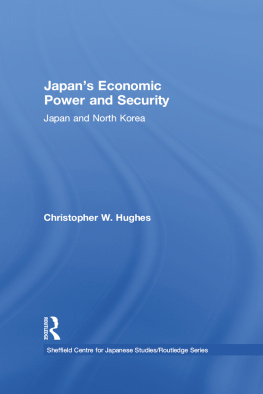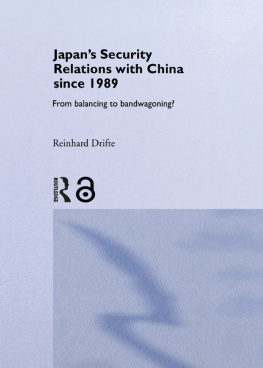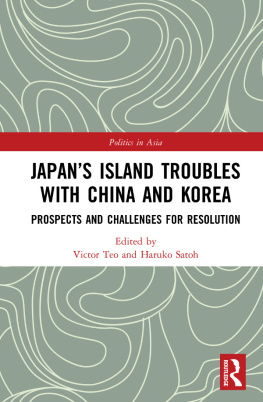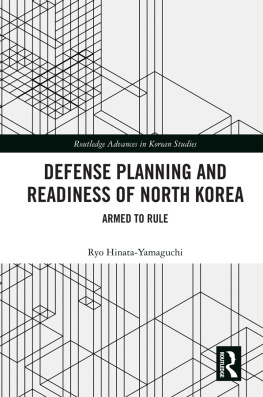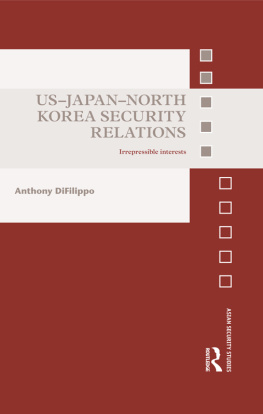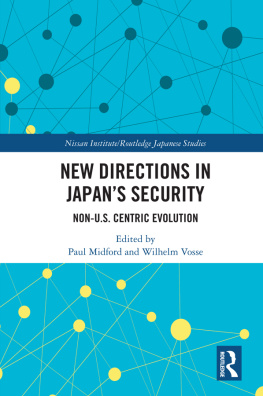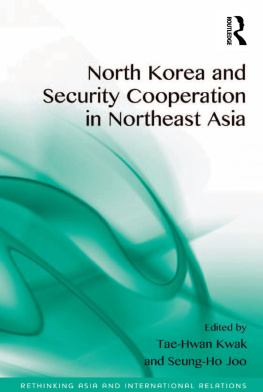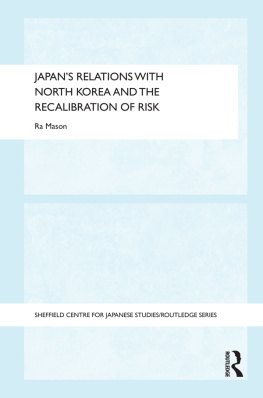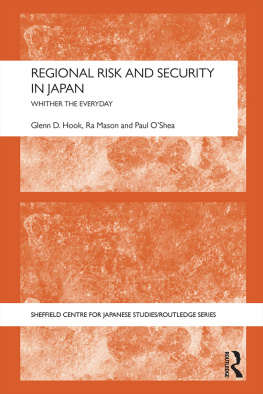Christopher W. Hughes - Japans Economic Power and Security: Japan and North Korea
Here you can read online Christopher W. Hughes - Japans Economic Power and Security: Japan and North Korea full text of the book (entire story) in english for free. Download pdf and epub, get meaning, cover and reviews about this ebook. year: 1999, publisher: Routledge, genre: Politics. Description of the work, (preface) as well as reviews are available. Best literature library LitArk.com created for fans of good reading and offers a wide selection of genres:
Romance novel
Science fiction
Adventure
Detective
Science
History
Home and family
Prose
Art
Politics
Computer
Non-fiction
Religion
Business
Children
Humor
Choose a favorite category and find really read worthwhile books. Enjoy immersion in the world of imagination, feel the emotions of the characters or learn something new for yourself, make an fascinating discovery.
- Book:Japans Economic Power and Security: Japan and North Korea
- Author:
- Publisher:Routledge
- Genre:
- Year:1999
- Rating:4 / 5
- Favourites:Add to favourites
- Your mark:
- 80
- 1
- 2
- 3
- 4
- 5
Japans Economic Power and Security: Japan and North Korea: summary, description and annotation
We offer to read an annotation, description, summary or preface (depends on what the author of the book "Japans Economic Power and Security: Japan and North Korea" wrote himself). If you haven't found the necessary information about the book — write in the comments, we will try to find it.
Japans Economic Power and Security: Japan and North Korea — read online for free the complete book (whole text) full work
Below is the text of the book, divided by pages. System saving the place of the last page read, allows you to conveniently read the book "Japans Economic Power and Security: Japan and North Korea" online for free, without having to search again every time where you left off. Put a bookmark, and you can go to the page where you finished reading at any time.
Font size:
Interval:
Bookmark:
and Security
Series Editor: Glenn D. Hook
Professor of Japanese Studies, University of Sheffield
Edited by Glenn D. Hook and Michael Weiner
Michael Weiner
Pekka Korhonen
Prospects for an economic partnership?
Robert Taylor
A comparison with the UK
Hasegawa Harukiyo
Richard Siddle
The illusion of homogeneity
Edited by Michael Weiner
Restructuring for low growth and globalization
Edited by Hasegawa Harukiyo and Glenn D. Hook
Pacific romances 19681996
Pekka Korhonen
Japan and North Korea
Christopher W. Hughes
and Security

by Routledge
2 Park Square, Milton Park, Abingdon, Oxon OX14 4RN
by Routledge
711 Third Avenue, New York, NY 10017
Hodgson Williams Associates, Tunbridge Wells and Cambridge
A catalogue record for this book is available from the British Library
Hughes, Christopher W.
p. cm.
1. JapanRelationsKorea (North) 2. Korea (North)RelationsJapan. 3. Security, International. 4. JapanMilitary policy.
5. Korea (North)Military policy. I. Title.
303.4825205193dc21 CIP
Hiroshima, September 1998
Font size:
Interval:
Bookmark:
Similar books «Japans Economic Power and Security: Japan and North Korea»
Look at similar books to Japans Economic Power and Security: Japan and North Korea. We have selected literature similar in name and meaning in the hope of providing readers with more options to find new, interesting, not yet read works.
Discussion, reviews of the book Japans Economic Power and Security: Japan and North Korea and just readers' own opinions. Leave your comments, write what you think about the work, its meaning or the main characters. Specify what exactly you liked and what you didn't like, and why you think so.

